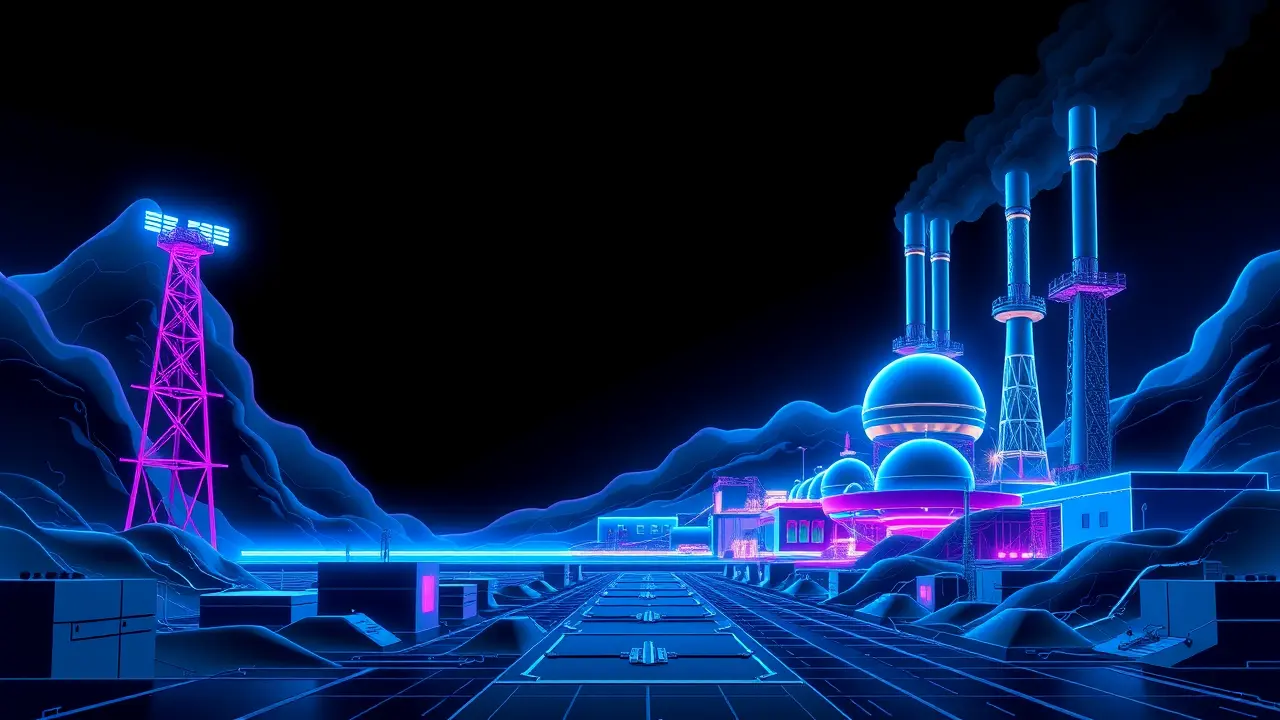
PoliticsdiplomacyBilateral Relations
Iran's President Vows to Rebuild Nuclear Facilities with Greater Vigor.
RO
Robert Hayes
10 hours ago7 min read
In a declaration that reverberates with the gravity of a historical pronouncement, Iranian President Masoud Pezeshkian has unequivocally stated his nation's intent to reconstruct its nuclear facilities 'with greater vigour,' a move that immediately recalibrates the geopolitical chessboard and evokes parallels with the most tense diplomatic standoffs of the modern era. This announcement, delivered on Sunday, arrives not as an isolated incident but as the latest strategic gambit in a long-running, high-stakes confrontation between Tehran and Western powers, primarily the United States and its European allies, a confrontation that has simmered since the collapse of the Joint Comprehensive Plan of Action (JCPOA) in 2018.While President Pezeshkian, a figure perceived by some as a moderate reformer, was careful to reiterate Iran's long-standing doctrinal position of unwillingness to develop a nuclear weapon—a stance enshrined in a 2003 fatwa from the Supreme Leader—the subtext of 'greater vigour' signals a deliberate acceleration of a nuclear program that has already made alarming advances, with the International Atomic Energy Agency (IAEA) reporting uranium enrichment levels perilously close to weapons-grade at facilities like Fordow and Natanz. The context is critical: this is not merely about rebuilding infrastructure but about projecting sovereign power and negotiating leverage, a tactic reminiscent of Cold War brinkmanship where the perception of capability is often as potent as the capability itself.Analysts from the International Crisis Group suggest that this hardened posture is a direct response to what Iran perceives as a failure of the West to provide meaningful sanctions relief and a continuation of what Tehran labels 'economic warfare,' a situation exacerbated by stalled negotiations in Vienna and increasing political pressure from a hardline parliament in Tehran. The consequences of this accelerated rebuild are multifaceted and profoundly dangerous; it potentially shrinks Iran's so-called 'breakout time'—the period required to amass enough fissile material for a single bomb—from months to mere weeks, a scenario that could compel a preemptive military response from Israel, which has repeatedly stated it will not allow a nuclear-armed Iran to emerge.Furthermore, this development threatens to trigger a regional nuclear arms race, with neighboring powers such as Saudi Arabia having explicitly declared they would seek to match any Iranian nuclear capability, thereby destabilizing an already volatile Middle East. From a historical perspective, one is drawn to Churchill's observation on the 'gathering storm,' as the international community appears once again at a crossroads, its diplomatic tools blunted and its deterrent credibility tested.The path forward is fraught; enhanced sanctions seem only to fuel Tehran's resolve, while military options carry incalculable risks. The Pezeshkian administration, therefore, is playing a dangerous game, betting that a more robust nuclear infrastructure will force a re-engagement on its terms, even as it pushes the world closer to a crisis for which there appears to be no clear off-ramp.
#Iran
#nuclear program
#nuclear facilities
#sanctions
#JCPOA
#diplomacy
#featured
Stay Informed. Act Smarter.
Get weekly highlights, major headlines, and expert insights — then put your knowledge to work in our live prediction markets.
Related News
© 2025 Outpoll Service LTD. All rights reserved.













